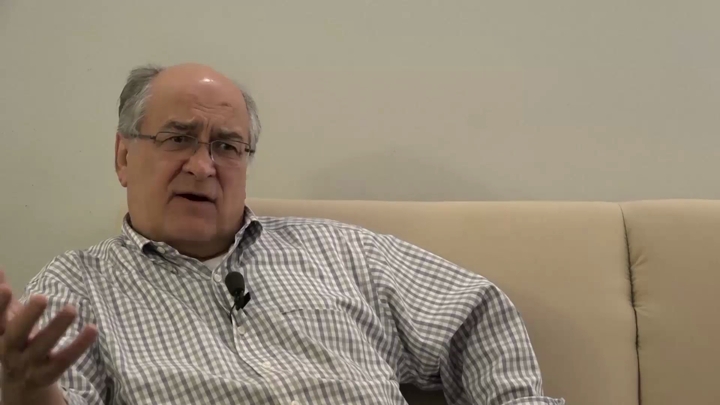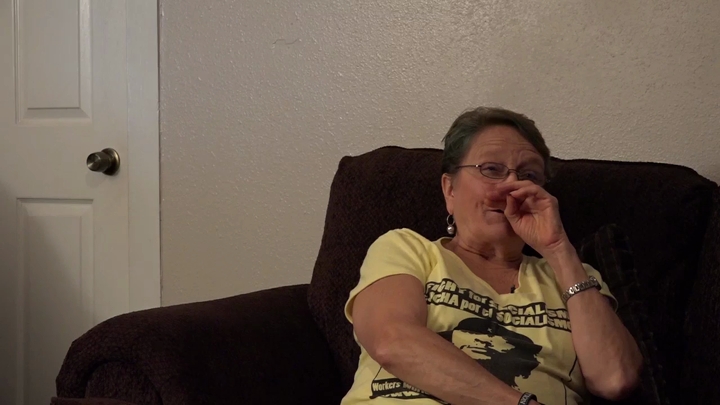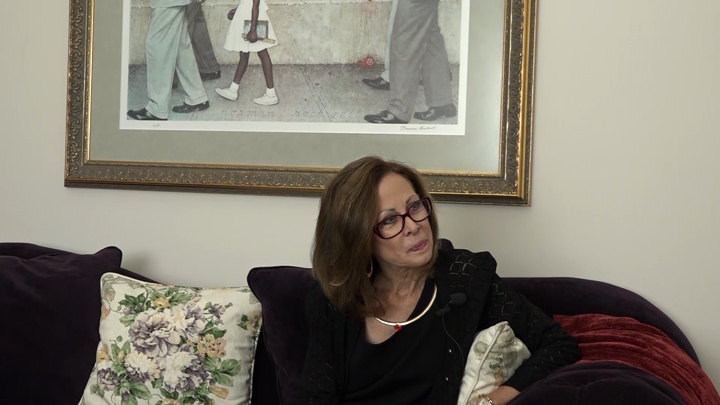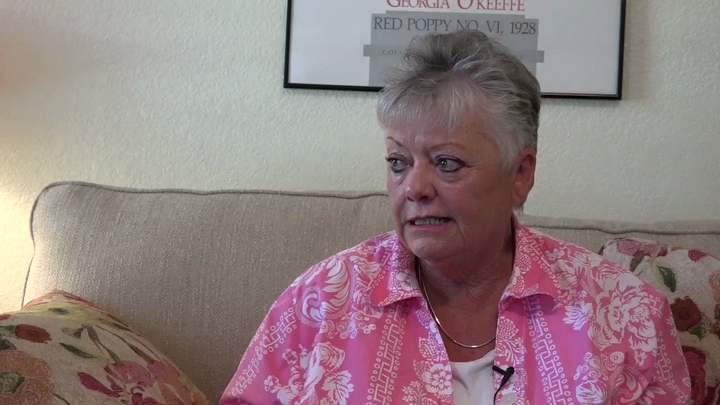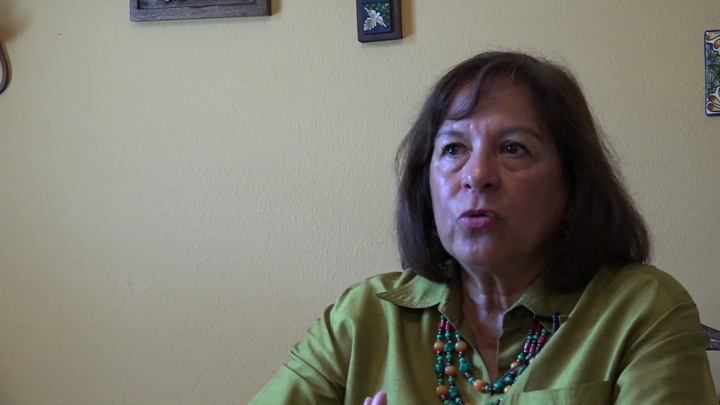Jimenez / Feminism and Gender Roles
sign up or sign in to add/edit transcript
Interviewer: How did being a feminist and Chicana influence your activism and how does it still inform it? Maria Jiménez: I remember this meeting on the Ricardo Agape Guerra case, which was the Mexican national that we fought for years and years to get off death row. At the time, it went through different phases and different organizations taking the lead on it. At the time it was Alvarado Luna and Liz Muirro, they were a married couple and they were leading the fight. There was a national meeting and I remember they invited people from Nuevo Mexico, and people would praise Alvarado for allowing Liz to be his equal partner in this fight again and again. I remember this one guy from Nuevo Mexico, this very macho type he says to Alvarado, “That is great that you allow Liz to march by your side in this fight.” So when I was asked to address it I said, “I do not fight in in back of men, and I do not fight beside men. Many times I fight in front of men. I do not care whether they like it or not. “ That is basically my philosophy. I am contributing and if I am recognized for what I am contributing to bad. I never changed my name when I married. There are certain things I will not do to hide my identity. My gender identity. There are other times where tradition forces you into gender roles. They do them very consciously to advance the political movement. In the past I have done that as well. Interviewer: How so? Maria Jiménez: Well, when I was leading the MAYO chapter- that why I dated someone from Mexico. I never dated anyone from the US because I knew they did not respect women they had sex with. What I call the super machos at the time. So I just did not date anybody from the group. I knew you could only lead Mexicanos if you were a virgin, or a mother. I was not a mother so I had to be a virgin in their eyes. [laughs] So I played on the gender conceptualization for the leadership. Interviewer: What other difficulties did you face with the super machos in MAYO and the groups you were part of? Maria Jiménez: You have to- you always face them. I could face them because I was always able to demonstrate greater experience or being their equal. They respected me for being their equal. But I do think that most women do not have that position. I was- sometimes it was the reverse discrimination sometimes. But in general I think that I did what I had to do and if people liked it- fine- if they did not that was okay too.
| Interview | Interview with Maria Jimenez |
| Subjects | Family › Marriage |
| Family › Cultural Heritage Gender Roles | |
| Gender and Sexuality | |
| Student Activism | |
| Chicano Power › Mexican American Youth Organization (MAYO) | |
| Gender and Sexuality › Feminism | |
| Gender and Sexuality › Women's rights | |
| Gender and Sexuality › Women's rights › Women's Liberation | |
| Tags | sign up or sign in to add/edit tags |
| Interview date | 2016-06-13 |
| Interview source | CRBB Summer 2016 |
| Interviewees | Jimenez, Maria |
| Interviewers | Enriquez, Sandra |
| Rodriguez, Samantha | |
| Locations | Houston, TX |
| Duration | 00:04:31 |
| Citation | "Feminism and Gender Roles ," from Maria Jimenez oral history interview with Sandra Enriquez and Samantha Rodriguez, June 13, 2016, Houston, Civil Rights in Black and Brown Interview Database, https://crbb.tcu.edu/clips/4618/feminism-and-gender-roles, accessed February 25, 2026 |


